Sweet as honey
In many cities and towns in Europe, fathers used to carry their little boys, wrapped in their fathers’ Talitot to the classroom on the first day the child learned the Hebrew Alef-bet. The child then got to lick honey off of each letter he read correctly, letting the child taste, how sweet learning Torah is. When the child was ready to learn The Chumash (5 books of Moses), the rabbi would first learn with them Parashat Vayikra, even before starting Bereishit! Why starting with Parashat Vayikra?
Our sages explained that because Vayikra deals with korbanot, sacrifices, it is fitting for little kids to learn it. When a Jew studies the laws of korbanot, G-d considers it as if he actually offered a korban. Like a tzadik, kids are free from sin, thus their offerings are the best kind of korbanot.
“And He called”
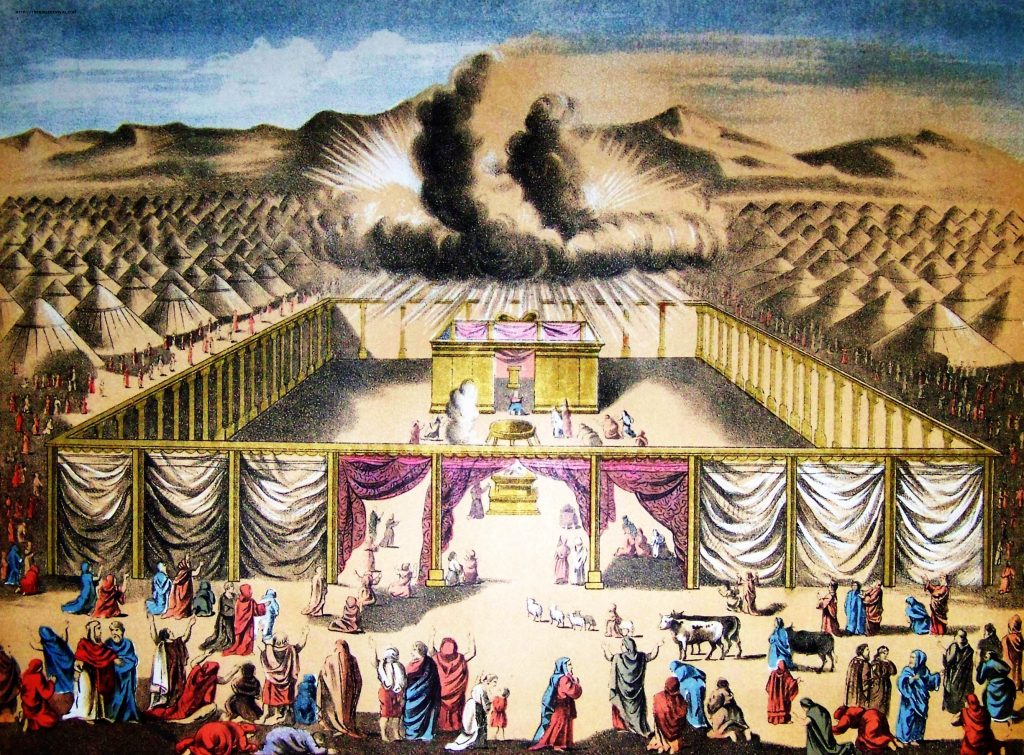
Parashat Vayikra, וַיִּקְרָא, Hebrew for “and He called,” is the first Torah portion in the Book of Leviticus. Parashat Vayikra begins where the book of Shemot ended. After Mosheh set up the Mishkan, G‑d’ clouds surrounded the Mishkan from all sides and from above. The Shechinah rested in a cloud, inside the Mishkan. Mosheh stood outside of the Mishkan, G-d calls him from the Tent of Meeting, and communicates to him the laws of the korbanot, קָרְבָּנוֹת (the animal and meal offerings) brought in the Sanctuary, and the priests serving in the tabernacle. Some offerings are optional; some are mandatory. Some of the offerings are burnt to ashes on the altar, and some remain for the priests and the giver of the offering. There are five kinds of korbanot
The five kinds of korbanot
OLAH– The “ascending offering” that is wholly raised to G‑d by the fire atop the altar;
MINCHAH– Five varieties of “meal offering” prepared with fine flour, olive oil and frankincense;
SHELMIM– The “peace offering”, whose meat was eaten by the one bringing the offering, after parts are burned on the altar and parts are given to the kohanim (priests); cattle, sheep, and goats.
CHATAT– The different types of “sin offering” brought to atone for transgressions committed by mistake either by the High Priest, the entire community, the king or the ordinary people.
ASHAM– The “guilt offering” brought by one who has misappropriated property of the Sanctuary, who is in doubt as to whether he transgressed a divine prohibition, or who has committed a “betrayal against G‑d” by swearing falsely to defraud a fellow man.
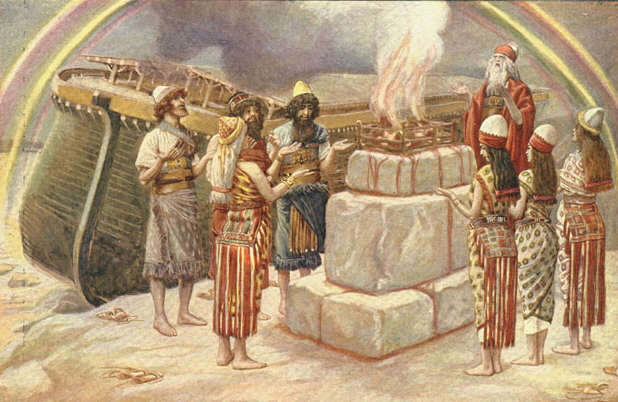
They were seven people who offered korbanot, way before the Mishkan even existed. Adam, Hevel, Noach, Avraham, Yitzchak, Yaakov, and Mosheh.
Mosheh’s humility
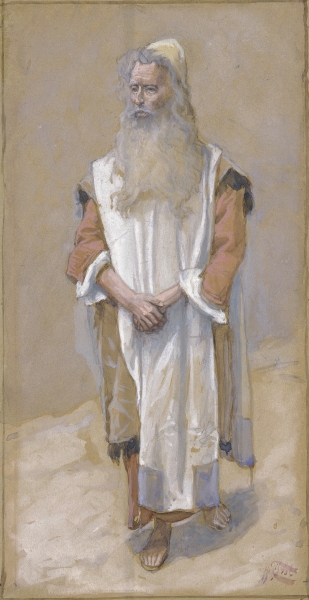
The word Vayikra ends with an alef. In our parashah the alef is written with a little alef וַיִּקְרָא The sages teach that this alludes to Mosheh’s humility. “The really tough thing about humility is that you can’t brag about it.”- Gene Brown. The Torah describes Mosheh as the most humble person on earth, and yet, Mosheh was considered as the greatest man on earth. How can a person be both humble and so great? Mosheh knew that his greatness; speaking to G-d face to face, and receiving the Torah directly from G-d, was not to his credit, but was a gift from G-d. Mosheh’ extraordinary humility was his ability to see the greatness of others, and feel humble compared to them. (based on Likutei Sichot vol.17)
The 613 desires
People search for the purpose of creation, approaching it step by step by correcting their nature, getting closer, nearing if you will, with the Creator. That nearing is called Korban (offering/sacrifice) from the word Karov (near). There are 613 desires in us, which we must correct one at a time, each desire with all of its parts. The entire world is a spiritual world, everything happens in our minds. When we act by thought, the world becomes much more spiritual. The work of the offerings teaches us how to correct our nature and achieve the state of “love your neighbor as yourself” by that, we become similar to the Creator and achieve Dvekut with Him. Everything happens in our minds, through our thoughts, may we find the way to rise, by loving others like ourselves.
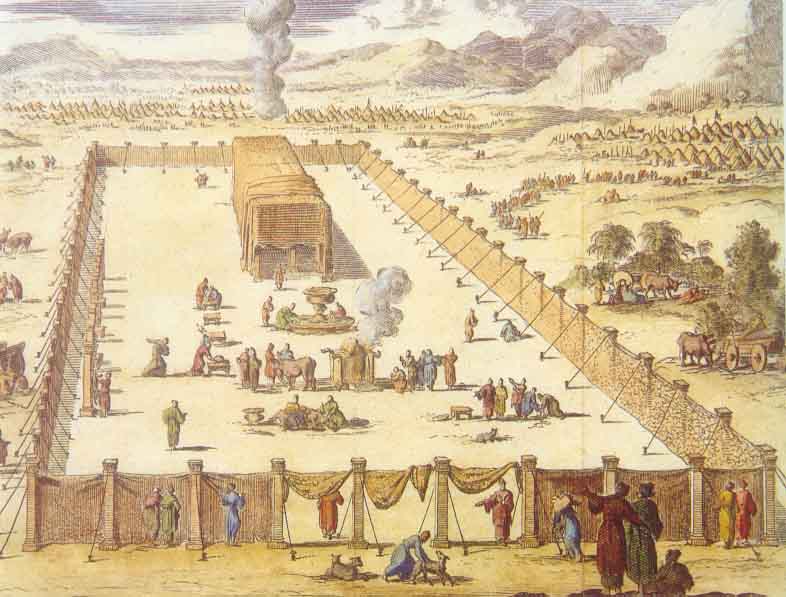

18 Mitzvot in Parashat Vayikra
- Carry out the procedure of the burnt offering as prescribed in the Torah Lev. 1:3
- To bring meal offerings as prescribed in the Torah Lev. 2:1
- Not to burn honey or yeast on the altar Lev. 2:11
- To salt all sacrifices Lev. 2:13
- Not to omit the salt from sacrifices Lev. 2:13
- Not to put frankincense on the meal offerings of wrongdoers Lev. 3:11
- Not to eat blood Lev. 3:17
- Not to eat certain fats of clean animals Lev. 3:17
- The Sanhedrin must bring an offering (in the Temple) when it rules in error Lev. 4:13
- Every person must bring a sin offering (in the temple) for his transgression Lev. 4:27
- Anybody who knows evidence must testify in court Lev. 5:1
- Bring an oleh v’yored (temple offering) offering (if the person is wealthy, an animal; if poor, a bird or meal offering) Lev. 5:7-11
- Not to decapitate a fowl brought as a sin offering Lev. 5:8
- Not to put oil on the meal offerings of wrongdoers Lev. 5:11
- One who profaned property must repay what he profaned plus a fifth and bring a sacrifice Lev. 5:16
- Bring an asham talui (temple offering) when uncertain of guilt Lev. 5:17-18
- Return the robbed object or its value Lev. 5:23
- Bring an asham vadai (temple offering) when guilt is ascertained Lev. 5:25
The 613 Mitzvot
In The Torah there are 613 commandments, mitzvot, also known as the Law of Moses (תרי״ג מצוות, taryag mitzvot). The 613 mitzvot are first recorded in the 3rd century CE, when Rabbi Simlai mentioned it in a sermon that is recorded in Talmud Makkot 23b.
The 613 commandments include 248 “positive commandments”, to perform an act (mitzvot aseh), and 365 “negative commandments”, to abstain from certain acts (mitzvot lo taaseh). The negative commandments number 365, which coincides with the number of days in the solar year, and the positive commandments number 248, a number ascribed to the number of bones and main organs in the human body.
Though the number 613 is mentioned in the Talmud, its real significance increased in later medieval rabbinic literature, including many works listing or arranged by the mitzvot. The most famous of these was an enumeration of the 613 commandments by Maimonides, The Rambam.
Many of the mitzvot cannot be observed now, following the destruction of the Second Temple, although they still retain religious significance. According to one standard reckoning, there are 77 positive and 194 negative commandments that can be observed today, of which there are 26 commands that apply only within the Land of Israel. Furthermore, there are some time-related commandments from which women are exempt (examples include shofar, sukkah, lulav, tzitzit and tefillin). Some depend on the special status of a person in Judaism (such as kohanim), while others apply only to men or only to women.
according to Rambam Organized by Parshah. based on Wikipedia and http://www.vaadrv.org/rambam613mitzvot.asp ONE BIG IMPORTANT NOTE WHEN USING THIS LISTING: This listing is not all inclusive. Rambam may site multiple sources for a mitzvah is his works but this list currently only gives one source for each mitzvah.

Check out YedidYah Psalm 96 “Yiram Hayam” Music by Rabbi Yakira Yedidia https://youtu.be/aTBD4i9nvXw
The Priestly Blessing
יְבָרֶכְךָ יהוה, וְיִשְׁמְרֶךָ- May the LORD bless you and guard you
יָאֵר יהוה פָּנָיו אֵלֶיךָ, וִיחֻנֶּךָּ -May the LORD make His face shed light upon you and be gracious unto you
יִשָּׂא יהוה פָּנָיו אֵלֶיךָ, וְיָשֵׂם לְךָ שָׁלוֹם- May the LORD lift up His face unto you and give you peace
Check out YedidYah “The Priestly Blessing” Birkat Hakohanim. Music by Rabbi Yakira Yedidia https://youtu.be/YNE11QdEMN0
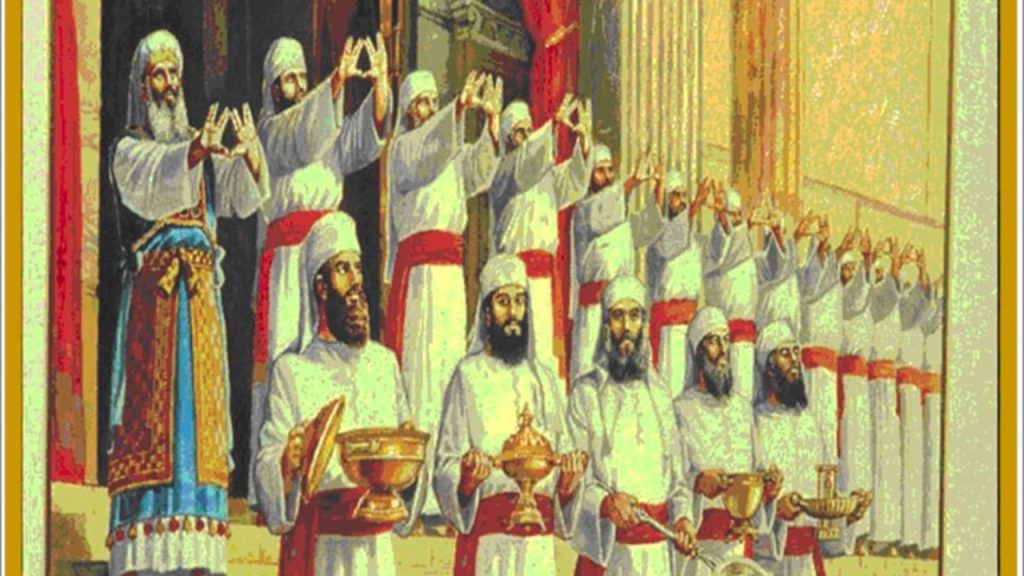
#####
This blog article was inspired by chabbad.org

